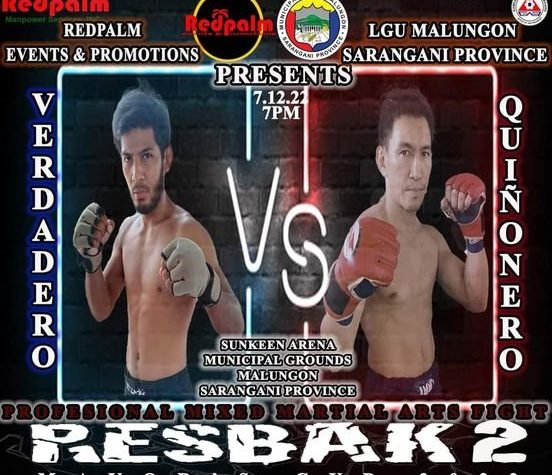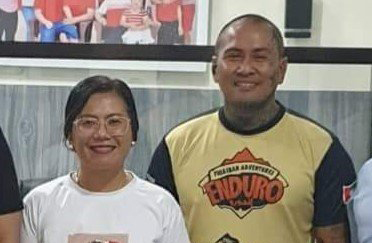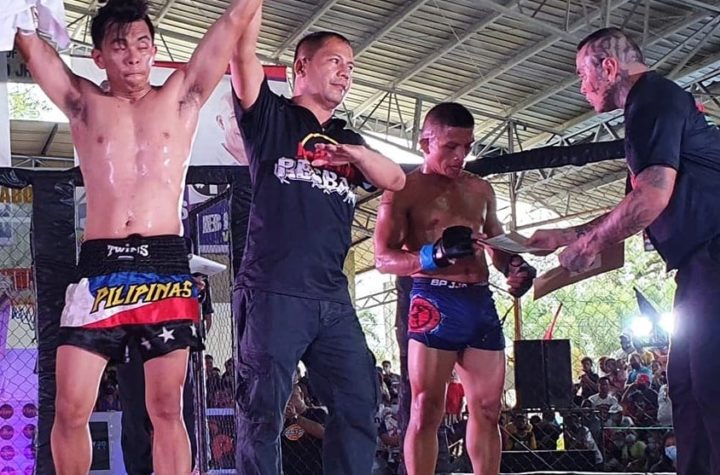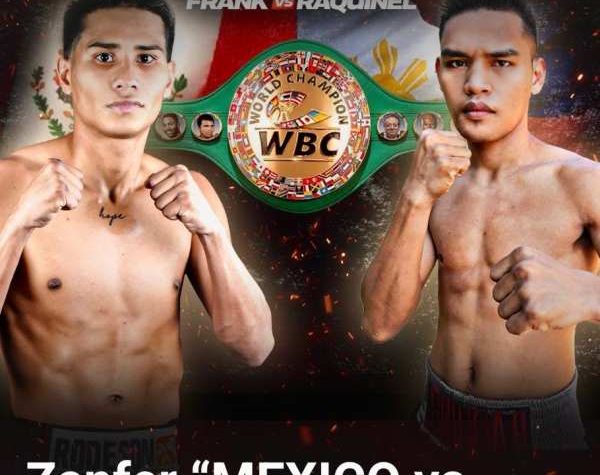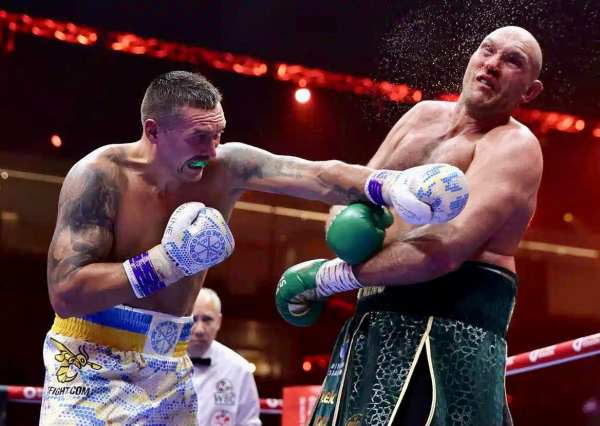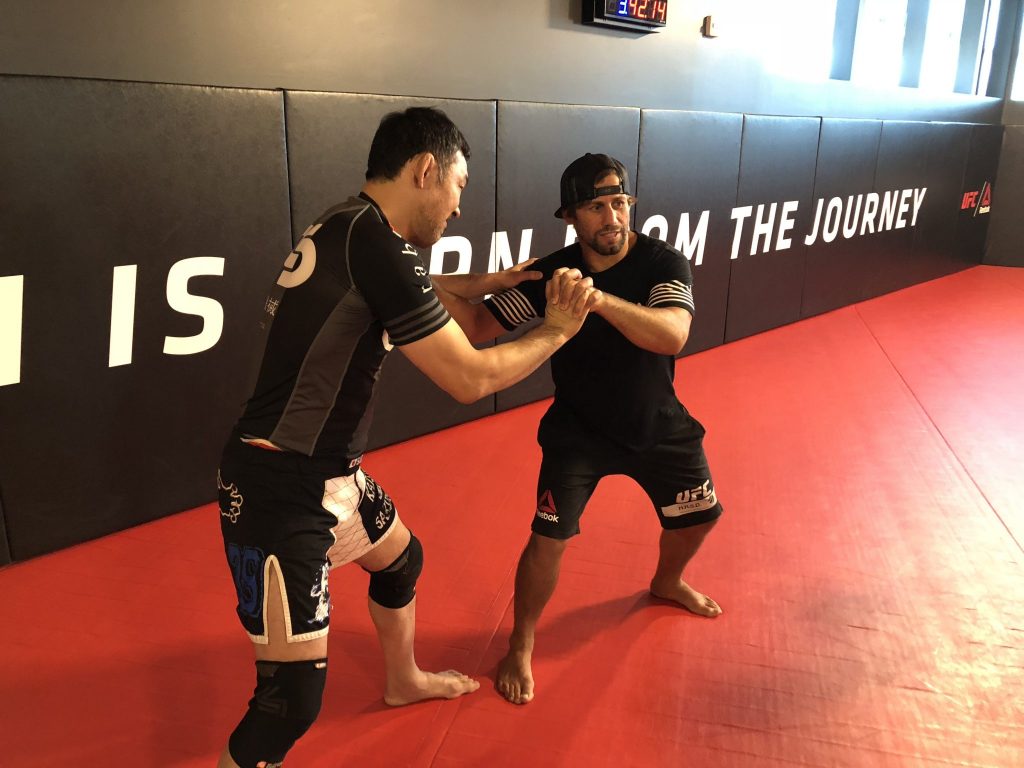
LAS VEGAS — Kazushi Sakuraba has done it all in his Hall of Fame career. The mixed martial arts O.G. went 90 minutes with Royce Gracie in PRIDE, won a UFC tournament, and has carried on from the sport’s beginnings all the way to the big corporate era.
Throw in a start as a standout collegiate wrestler and a lengthy history in professional wrestling, and there’s nothing Sakuraba hasn’t done or seen.
So when the ageless wonder has something to say about the state of a particular aspect of the combat sports game, his words carry weight. And he wasn’t afraid to say why he believes sport jiu-jitsu tournaments haven’t quite caught on with the mainstream.
“Typically, grappling events are not really known for being exciting,” Sakuraba said through an interpreter.
But Sakuraba knew that sport jiu-jitsu contained the elements of a potentially exciting sport, and that’s why he decided to devise Quintet, a grappling concept which combines a smattering of well-known names with rules designed to maximize the action.
“I want fighters who can have exciting matches,” Sakuraba said recently. “Not point-getters, but people that move around aggressive and constantly looking to make the submission.”
After rolling out the product in Japan earlier this year, Quintet, which features four teams of five — Team Sakuraba, Team Urijah Faber, Team Polaris and Team 10th Planet — makes its United States debut with Quintet 3 on Friday, Oct. 5 at Orleans Arena in Las Vegas, one night before UFC229 and the Khabib Nurmagomedov vs. Conor McGregor fight at T-Mobile Arena. The event will be streamed live on UFC Fight Pass.
The competitors believe with a rule set which maximizes action, Quintet is the perfect opportunity for mixed martial arts fans to give a grappling competition another look. If you tuned into an event like Metamoris in recent years, lured by big MMA names, and saw a yawner of a product with many as five out of six bouts ending in draws, then Quintet is the event that hopes to hook fans on the submission arts once and for all.
“We have the best grapplers, the most exciting grapplers all around who are involved in this, so you know you’re going to get good matches,” said former UFC heavyweight champion Josh Barnett, who is a part of Team Sakuraba. “We have interesting matchups. It’s not all just about this BJJ guy vs. that BJJ guy who wrestle each other all the time, but we have Urijah Faber coming down, guys from Polaris, people from Sambo, its a wide variety so you can give different looks, see different approaches.”
The concept works like this: Two fighters from each team square off. The losing fighter is eliminated; the winner stays on and fights the next competitor from the next team. In the case of a draw, both competitors are eliminated, and the next two on the respective depth charts continue the meet. This continues until all five members of one team has been eliminated, giving the other the victory.
“I love the fact it is sub only,” said jiu-jitsu legend Eddie Bravo, the captain for Team 10th Planet. “I love that. I love that it’s double DQ. That’s the most gangster thing. There’s like three or four or five different versions of sub only, and the double DQ is by far the most gangster. Because at the end of the match they’re both going for it. I love it.”
Rather than match fighters up in straight weight classes, Quintet puts a cap on the total team weight. Most bouts are one, eight-minute round. However, should there be a discrepancy of more than 20 kilograms (about 44 pounds), the bout has a four-minute time limit.
“It adds an extra level of not just strategy and tactics but tension to watching these matches,” Barnett said. “One thing can happen a couple things, all of a sudden, one team member who is ahead of behind. You have a bigger guy fighting a smaller guy and it’s a cat-and-mouse game, and the clock is ticking and both guys know a draw means they’re out and it can get pretty wild.”
And while Bravo’s 10th Planet competitors are known for taking on pretty much anyone, anywhere, in any format, he’s also enough of a pragmatist to know that points jiu-jitsu is likely only going to appeal to hardcore grappling aficionados.
“I’m 100 percent convinced that the only way jiu-jitsu is going to work in the mainstream is with a sub-only format,” Bravo said. “Any kind of points tournament is not going to work. We’ve had point jiu-jitsu tournaments forever. Rickson [Gracie] tried to make a show called Bushido. That didn’t last. I’m 100 percent convinced the only chance a grappling show has if it is a sub-only format.
“We’ve had points tournament, people who are into points tournaments don’t even support points tournaments,” Bravo said. “No one wants to watch it, that sh*t is boring. It’s like chess, chess is an amazing game, Points tournaments cerebral and important, but it’s just not made for TV, it’s just too boring. The only shot jiu-jitsu has in grappling is sub only. That’s my opinion. I believe that through and through.”
Then there’s the other aspect to big-name involvement in sport grappling: It gives fighters a chance to stay active. Sakuraba is 49 and finally appears to be winding down his MMA days and Faber had a famous sendoff in his hometown of Sacramento in 2016.
Faber, for his part, knew he still had something left in the tank when he walked away from MMA following a memorable win over Brad Pickett in his retirement fight.
“It’s definitely part of that,” said the Team Alpha Male founder, who will meet Sakuraba to kick off Quintet 3. “I still get in a couple days a week and compete with the guys and I know for sure I could still compete know if I wanted to. Some of my peers, people I look up to competed until their late 40s and it’s tempting to do that, good money. It’s hard to let go sometimes of the limelight and the opportunities that come with it, but this is a great way for me to scratch the itch of competition. When I started fighting, it was illegal in California, there was no weight class for me, the UFC had three events a year, there was no road map or big picture, it was like, I want to compete. This is an extension of that.”

